Women in executive positions: making a difference with International Women’s Day

At TSS, we see diversity and gender equality as a priority. Our ambition is to have a gender balance that reflects the world around us and a workplace where both men and women have an equal opportunity to succeed in every function and being rewarded equally. We are convinced that such a workplace is the most effective in achieving the company’s goals.
International Women’s Day
The TSS management team consists of three men, and three women which we decided to have a chat with on this special day.
Ingrid Szabo is Chief Global Services officer, heading up our production and delivery organization. Petronella Klingofström is Chief Quality officer, and Nina Nilsson Chief Revenue officer leading marketing, sales, account management, and customer service.
What does gender equality mean to you?
Petronella: To me the family part is important. You should be able to have a life, a family if you want to, but still be able to have a career. Traditionally that has negatively impacted women predominantly. It is important that a family policy at the company supports working parents with the same rights and obligations for men and women.
Ingrid: It lies in the word equality, doesn´t it. We should be given equal opportunities. I have often worked in male-dominated environments but have mostly positive experiences. Actually, it can be an advantage when you are not one of the masses – be one of few instead of one of many. Still, competence needs to precede gender.
Nina: I agree with both of you. And, apart from being the right thing and a fundamental human right, it is also the smart thing if you want to run a profitable business. Studies have proven diversity in leadership having a direct correlation to profitability.
Sweden is often seen as an International role model when it comes to gender equality, with a long history of early adoption of legislation like parental leave instead of maternity leave (1974) and gender discrimination in workplaces becoming illegal (1980).
The business sector, on the other hand, is a heavily male-dominated field. On the average board of a Swedish stock market company, about one in three were women in 2018 – a great increase compared with a few years earlier. In fact, if this development continues at the same pace, the boards of listed companies in Sweden will be gender-equal within ten years.
In your professional roles, is it common to see women?
Nina: In marketing and customer support yes, at least in Sweden, in leading sales roles less than 20%. But looking at you, Ingrid, my perception is that your role is much more male-dominated.
Ingrid: Yes, manufacturing engineering and especially electronics attracts mostly men; on the logistics side, there are again more women. However, we see more and more women pursuing technical educations, and on the production floor, there are many women. I think a generational change is happening as we speak.
Petronella: My experience is that Quality is often dominated by women, but men still dominate the higher leadership positions. My background is on the IT side, where you see mostly men.

One way to drive change is to foster role models and networking. Do you have any female professional role model that has played a role in your career?
Ingrid: I spontaneously come to think of two previous managers, who were very successful in their positions, and I felt that you can have a career as a woman. TSS is actually my first job with a management team consisting of half women, half men.
Petronella: Back in the days, it was not very common for men to take parental leave, but luckily, this has changed. I remember a media situation once when a higher male manager in a large Swedish company announced that they were to split it 50-50. It created a log of discussions, and people were questioning how a manager could take that much time off; how would it go. But he just responded to the doubts with a simple: ” If parents cannot share the maternal leave, that means that a female manager could never take such a position or she would have to give up family”. Discussion over.
Nina: I cannot think of an individual, more of situations that have meant things to me. But professionally, I very much appreciate a more informal network of women in leading positions in life science companies here in Stockholm. We meet regularly, nowadays during the pandemic also for virtual after-works.

This year’s theme is Choose to Challenge and International Women’s Day, described as “A challenged world is an alert world. Individually, we are all responsible for our own thoughts and actions – all day, every day. We can all choose to challenge and call out gender bias and inequality. We can all choose to seek out and celebrate women’s achievements. Collectively, we can all help create an inclusive world. “ #ChooseToChallenge #IWD2021
Recommended reading:
– On women in healthcare leadership:
https://resultshealthcare.com/insight/women-in-healthcare-leadership/
– Women in business report by Grant Thornton:
– Gender equality in Sweden
https://sweden.se/society/gender-equality-in-sweden/#
– International Women’s Day official website
https://www.internationalwomensday.com/
– United Nations
https://www.un.org/en/observances/womens-day
You may also be interested in

The year in review: TSS’s most-read blog articles of 2021

5 benefits of adopting digital temperature monitoring solutions

Temperature management – from local to global
You may also be interested in

Join Us at LogiPharma Europe 2025

TSS launches innovative Bluetooth powered temperature monitoring solutions

Achieving FDA and EMA Compliance in Temperature Monitoring

Proactive Temperature Management: The Key to a More Resilient Pharma Supply Chain

Join Us at LogiPharma Europe 2025

TSS Receives CDP SME Climate Score 'SME B' for Strong Climate Actions

Future-Proofing Clinical Trials: How Sponsors Can Up-Scale Through Automation

Celebrating Women in Tech

Clinical Trial Supply Europe Event 2025

Sustainable Temperature Management: A Key to Greener Clinical Trials

10 Common Mistakes to Avoid During Customer Onboarding

TSS Keeps EcoVadis Silver Medal Despite Tougher Standards in 2024
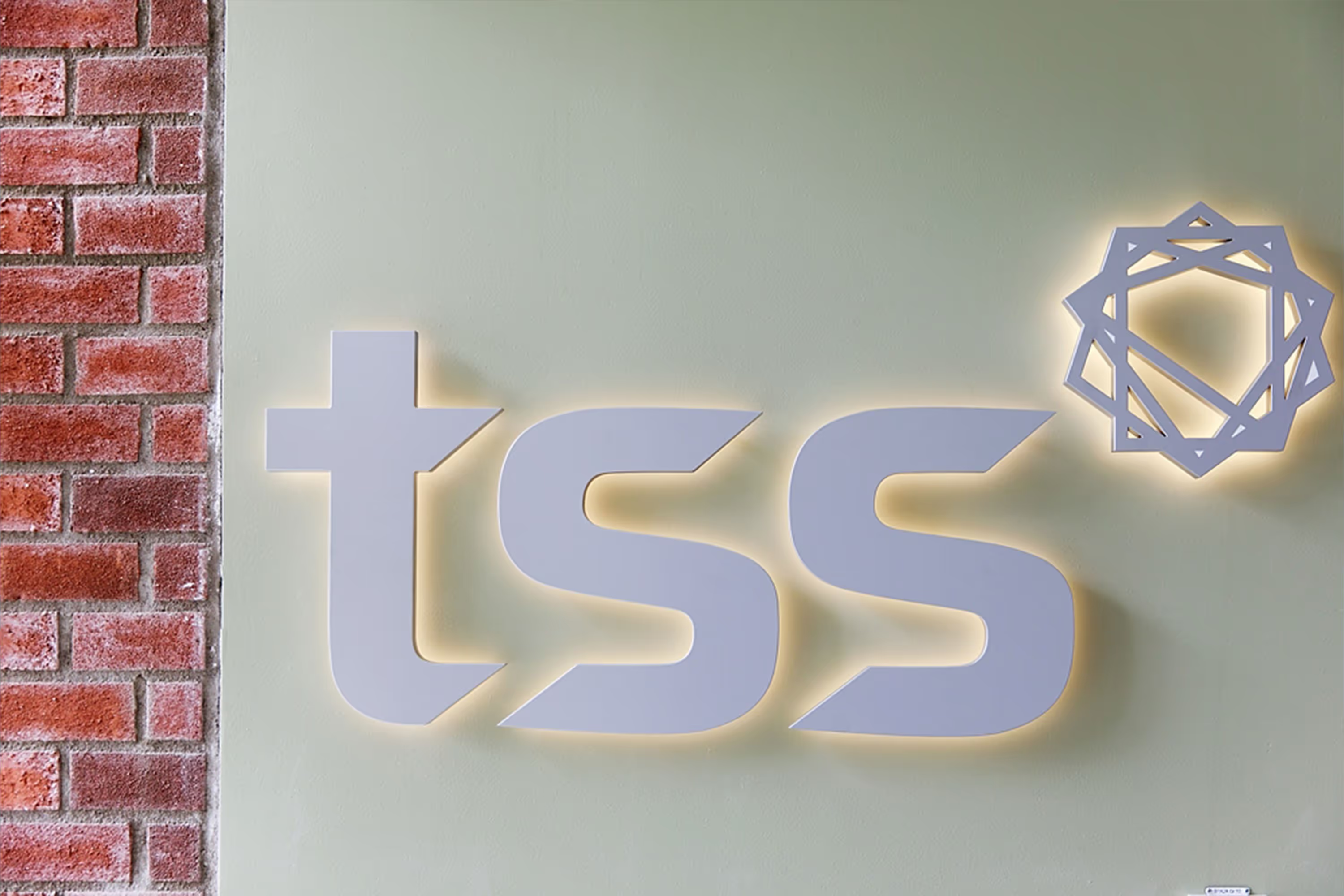
Change in the Management of TSS

How to Scale Up Your Clinical Trials

10 Steps to Navigating Sustainability in the Pharma Supply Chain

Balancing Cost and Quality in the Pharmaceutical Supply Chain: A Quick Guide

TSS Celebrates WTISD 2024: Embracing Innovation, Digitalisation, and Sustainability

Enhancing Product Quality and Compliance at Clinical Sites
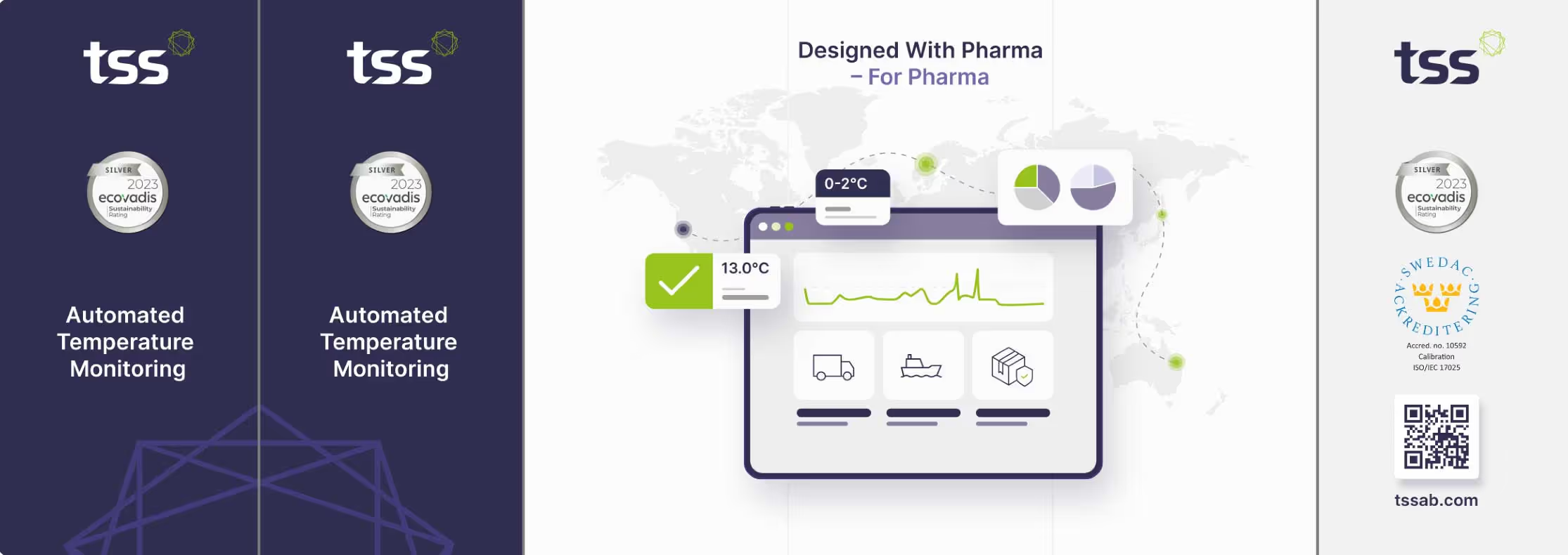
LogiPharma Lyon 2024
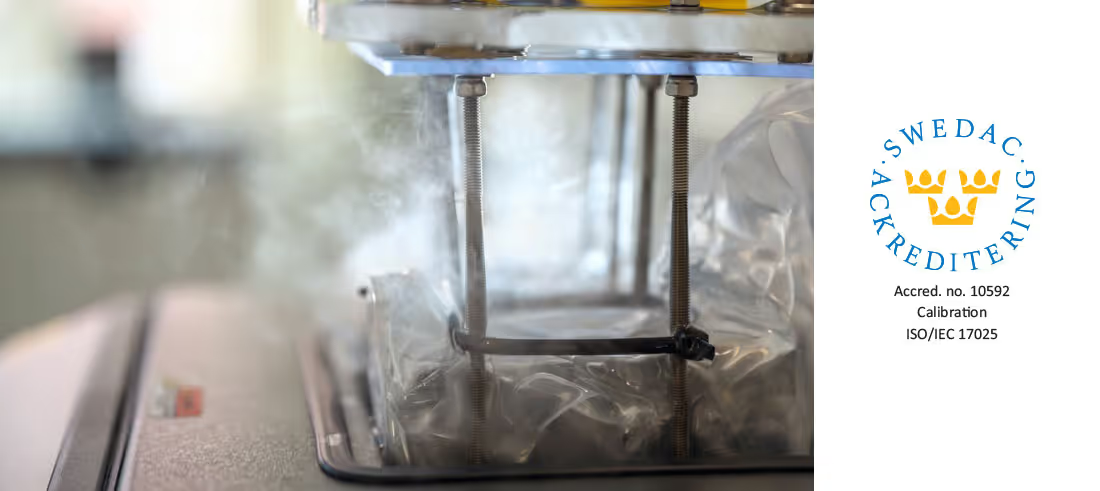
TSS Achieves Coveted ISO/IEC 17025 Calibration Accreditation

Join us at Clinical Trial Supply Europe 2024 in Barcelona

TSS User Forum 2023

TSS Welcomes Gustaf Rasin as New Chief Operations Officer

NECSO Cambridge 2023
.avif)
TSS Welcomes Thomas Lindén as New Chief Technology Officer

GCSG Athens 2023 Vendor Showcase Hosted by TSS

How GSK Pharma in UAE optimized the supply chain through automatization
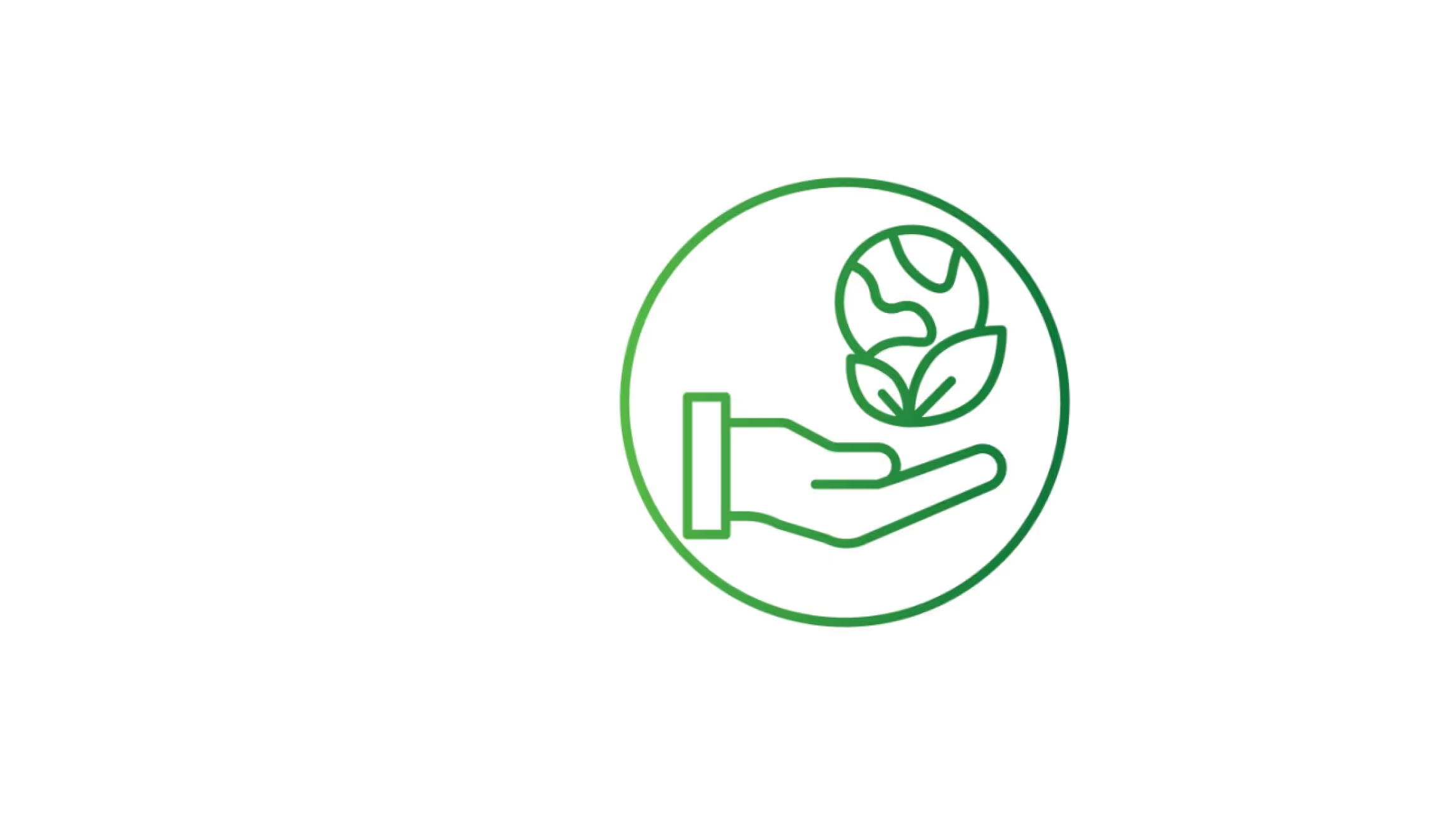
Cooperation with Swedish Innovation Authority and University to Optimize Sustainability Procedures

TSS Achieves EcoVadis Silver Medal for Advanced Sustainability Performance

How can maturity in temperature management move your decision process from days to seconds?

GCSG 2023 US Conference

3 steps to accelerate Decentralized trials & Release to patients

Join us at Clinical Trial Supply Europe 2023

We are back at Clinical Trial Supply East Coast

The GCSG 2022 European Knowledge Forum is coming up, and we will be there.

Meet us at Logipharma US in Boston on September 29th-30th

Boost value in clinical trial management with two-way integrations

Achieving pharma supply chain excellence through integrations

Join us at Temperature Control & Logistics in Düsseldorf

Meet our people: Quality Engineer, Akanksha Sharma

Is your supply chain ready for a digital transformation?
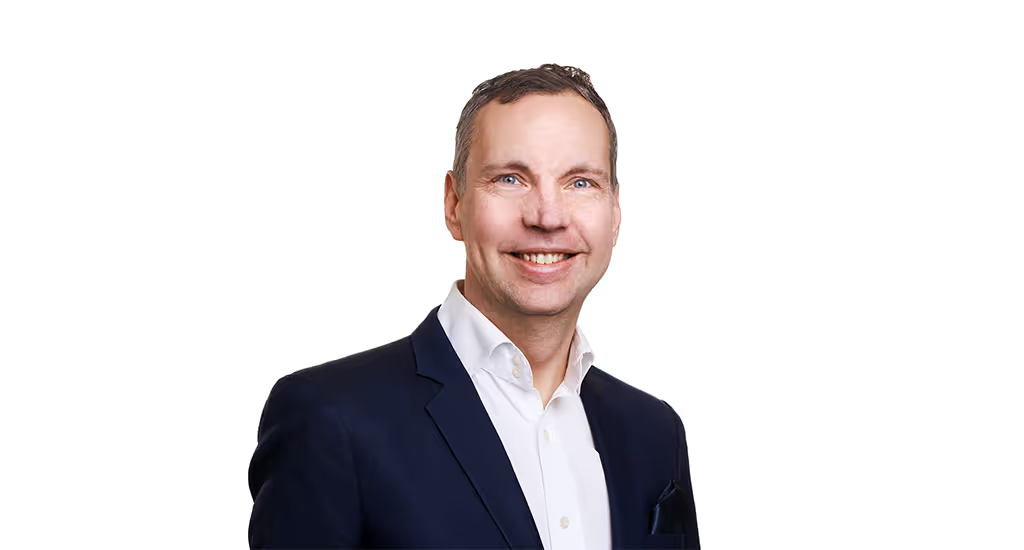
Q&A with Claes Kalderén: Our European Sales Manager
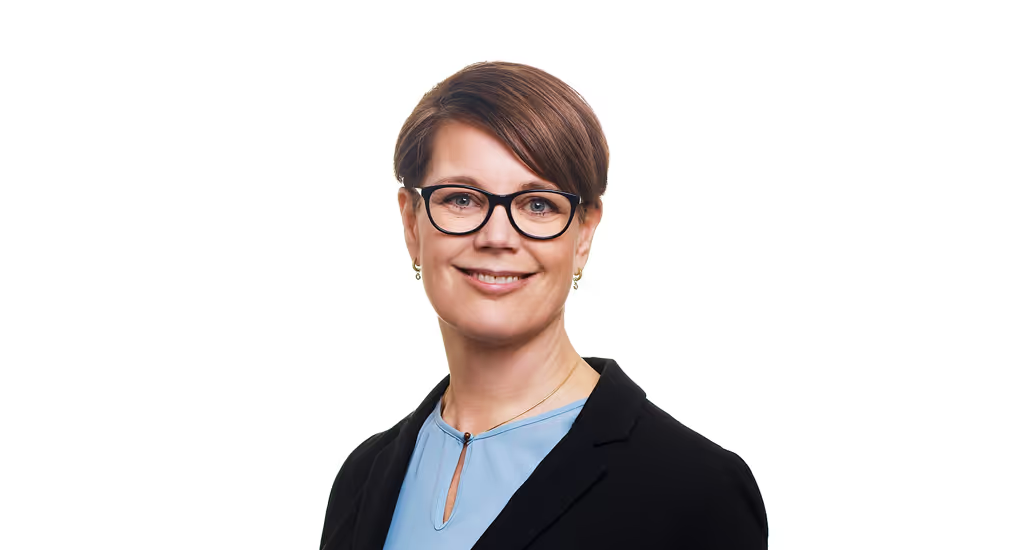
Meet Johanna Eriksson, Chief Product Officer at TSS

On-demand webinar: Maximize value with 2-way integrations in Clinical Trial Management

White paper: the future, today - the next generation of temperature monitoring

Join us at GCSC US 2022

Guide: The road to digital success in temperature monitoring

On-demand webinar: New approaches to automating temperature management in clinical trials

End-to-end visibility is the key to creating more efficient, cost-effective, and sustainable pharmaceutical supply chains

White paper: The next step to automating clinical trials

Getting the full value out of your supply chain temperature data

Join us at Clinical Trial Supply Europe 2022

4 things to know about TSS new BLE data loggers

The year in review: TSS’s most-read blog articles of 2021

Logipharma report: A fast-track learning exercise in pharma supply chain innovation

Temperature management – from local to global

Meet Nina Nilsson, Chief Revenue Officer at TSS

The Buyer’s guide to real-time temperature monitoring

Increasing visibility with a proactive supply chain

On-demand webinar: Master your supply chain with end-to-end visibility

On-demand webinar: Excursion Management – From days to seconds

Turn days into seconds at clinical sites worldwide

On-demand webinar: Digitalization and its impact on the pharma supply chain

Covid-19 situation

Innovation flourishes when different perspectives meet

Exploring the solution to a global question

How live access to GxP data support supply chain best practices?

On time and in full, when it matters most

5 benefits of adopting digital temperature monitoring solutions
.avif)
Reducing excursion evaluation time from days to seconds

Making the pharma industry future-proof through supply chain digitalization

New opportunities on the horizon as TSS expands US operations
.avif)
On-demand webinar: A unified approach to clinical supply temperature management

TSS Clinical Trials Digitalization User Forum 2021

Which way is the wind blowing? The implications of cloud-based IoT on temperature monitoring in the life science supply chain

On-demand webinar: Monitoring multiple products with one temperature data logger

Women in executive positions: making a difference with International Women’s Day

Automation is making temperature excursion management simpler and more efficient for clinical sites

Mind the gap: the real-world impact of data gaps in clinical trials

On-demand webinar: Introducing BLE technology for temperature monitoring

Visibility and automation: reducing disruption due to temperature excursions

On-demand webinar: Automating the clinical supply chain

Three approaches for automating clinical supply chains

Data-driven supply chains: improving your excursion rate and temperature performance in 5 steps

We’re attending LogiPharma 2022
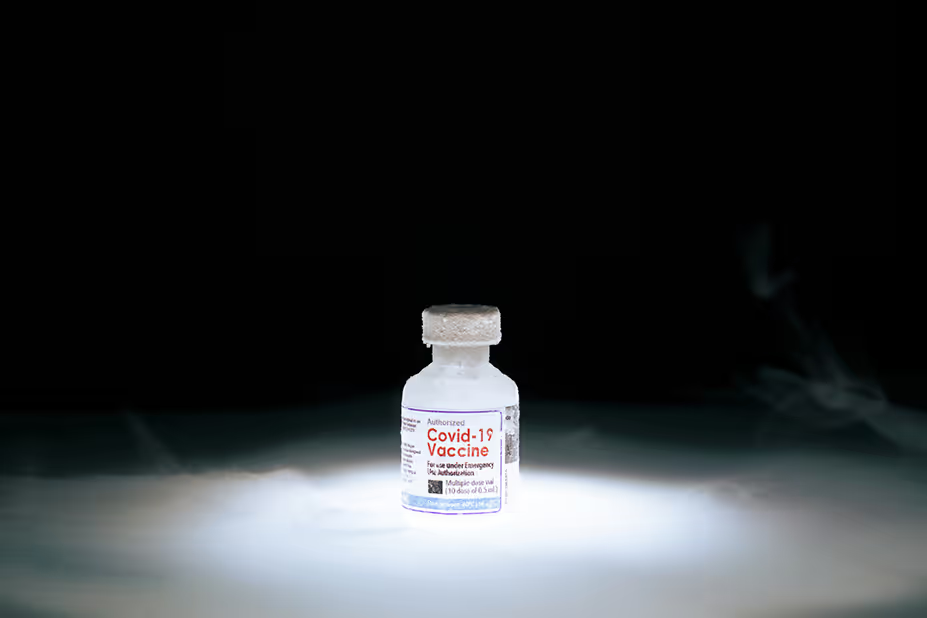
Could automating temperature excursion management hold the key to improving clinical supply processes?

TSS launches innovative Bluetooth powered temperature monitoring solutions

What is Quality?


